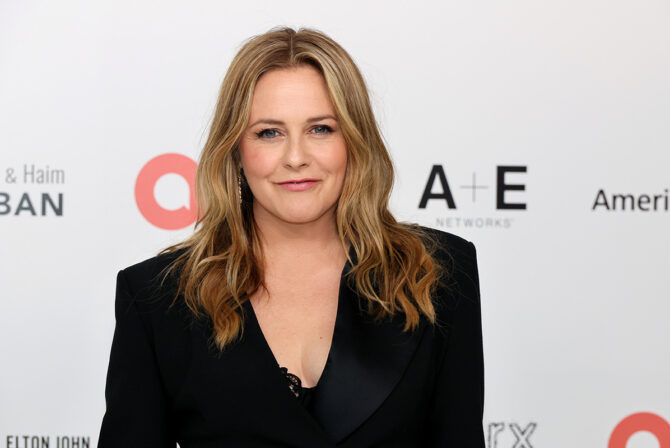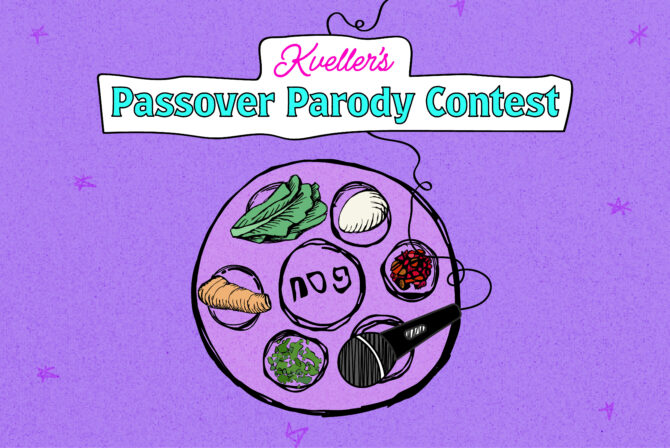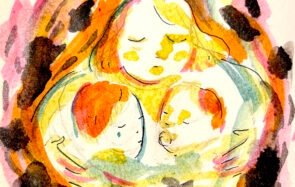Jessica Hoffman’s recent post about her favorite children’s story, The Apple Tree’s Discovery, made me think about my favorite children’s book, Yussel’s Prayer.
I did not go to shul (synagogue) for about 20 years as my children were growing up. Although many disagree regarding their own families, I did not feel that my kids belonged in shul until they could sit quietly and not disturb others and could participate in the davening (prayer service). So even on the holiest night of the Jewish calendar, the night on which Yom Kippur begins and the haunting melody of
Kol Nidre
is heard, I stayed home.
I loved that night, though. Each year, we waved my husband off to shul, I davened by myself and then the children would join me on my bed for our own Yom Kippur ritual. We would talk about what Yom Kippur meant–what they remembered about the past year, what they were particularly proud of, what their disappointments had been, what they would like to do better, what they hoped the coming year would bring. Even at 3 years old, most children are capable of some version of this conversation and certainly by 10 years old, they are frequently articulate, imaginative and thoughtful.
We then read Yussel’s Prayer, a sweet, resonant story about an orphaned boy who works for a wealthy, religious family. He is not permitted to go to shul as he has to tend to the cows in the pasture. The story juxtaposes his simple Yom Kippur day with that of the men for whom he works who act pious but whose prayers are distracted by their thoughts of the mundane and the banal.
Yussel spends his day eating nothing and “thinking.” He picks up his reed pipe and says, “Oh God, I don’t know any prayers. But I do know how to play the pipe. Since I can’t give you any words, I give you this tune instead.” With a full heart, Yussel plays the pipe, “and he thought about the goodness of God. His mind, his soul, his heart were all in the music as he played for God…”
One does not need to know “how to pray” to become close to God or to whatever one holds sacred. One needs only to reach deep inside one’s own soul.
I tried to teach my children that, as religious Jews, they were accountable to God and to themselves for their actions. They would make mistakes but they could learn from them. That whatever sin means to others, to me it means letting God and yourself down. Redemption means learning from your mistakes and trying to do better. It means being able to look at yourself in the mirror with a clear conscience, cognizant and capable of being a good, honest, decent person who will conduct him/herself in a manner that, in some tiny way, will make the world a better place and will make God smile.
Regardless of if one believes in the traditional notion of the Jewish God or not, Yom Kippur can still be a meaningful time for introspection and self-appraisal. Unlike the celebratory New Year on January 1st, the beginning of the Jewish New Year is a somber and sober time for self-reckoning. It is the one time during the year where we might want to feel the edge of the abyss that is human existence. It would be impossible to breathe if we felt the intensity of that experience every day. But once a year, it’s good to be humbled by the realization that so much is out of our hands, that so much in life defies our expectations and dreams. It’s good to have a special time to evaluate what is really important to us and how we can each become the human being we want to be. The person we want to present to God, to the world, and to ourselves.
When we look at our children, and later at our grandchildren, our hearts are filled with love and fear. It’s a scary world. We want to protect our kids and do right by them. We try really, really hard to be the best parent that we can be. But Yom Kippur reinforces that feeling of humility, a sense of our own limitations. We pray to God, and to ourselves, to be forgiving of our mistakes, to be tolerant of our shortcomings.
And we turn to the sacred, whether that is to God, to the universe, or to the small voice within ourselves. And we pray.
Give me strength, give me courage. Give me wisdom.
Give us a good year filled with joy, good health, peace of mind, and an easy, comfortable livelihood.
Dear God, I come before you, my heart in my hands, and I beg you. Take care of the ones I love. Accept my prayer like Yussel’s, “a simple melody played on a reed pipe,” which opened the gates of heaven.
To all Kveller readers, I wish you and your families good health, happiness, love and laughter, a calm spirit and nachas (joy and pride) from your children and grandchildren in a peaceful world.
For more on Yom Kippur, read about the basics of the holiday, teaching kids how to say sorry, and break fast recipes. And to get great Jewish holiday kids books delivered to your home for free, sign up for PJ Library through Kveller here.







